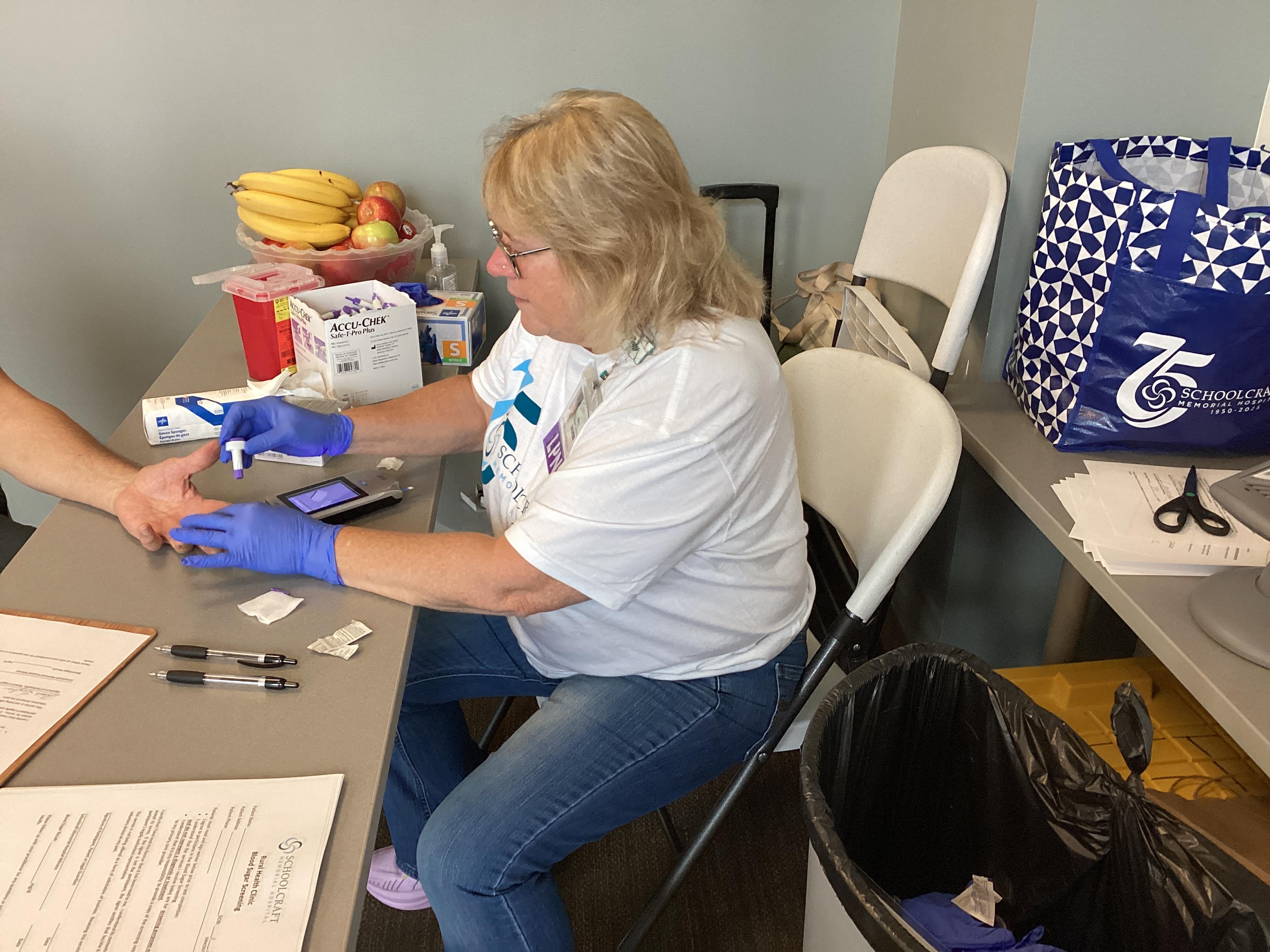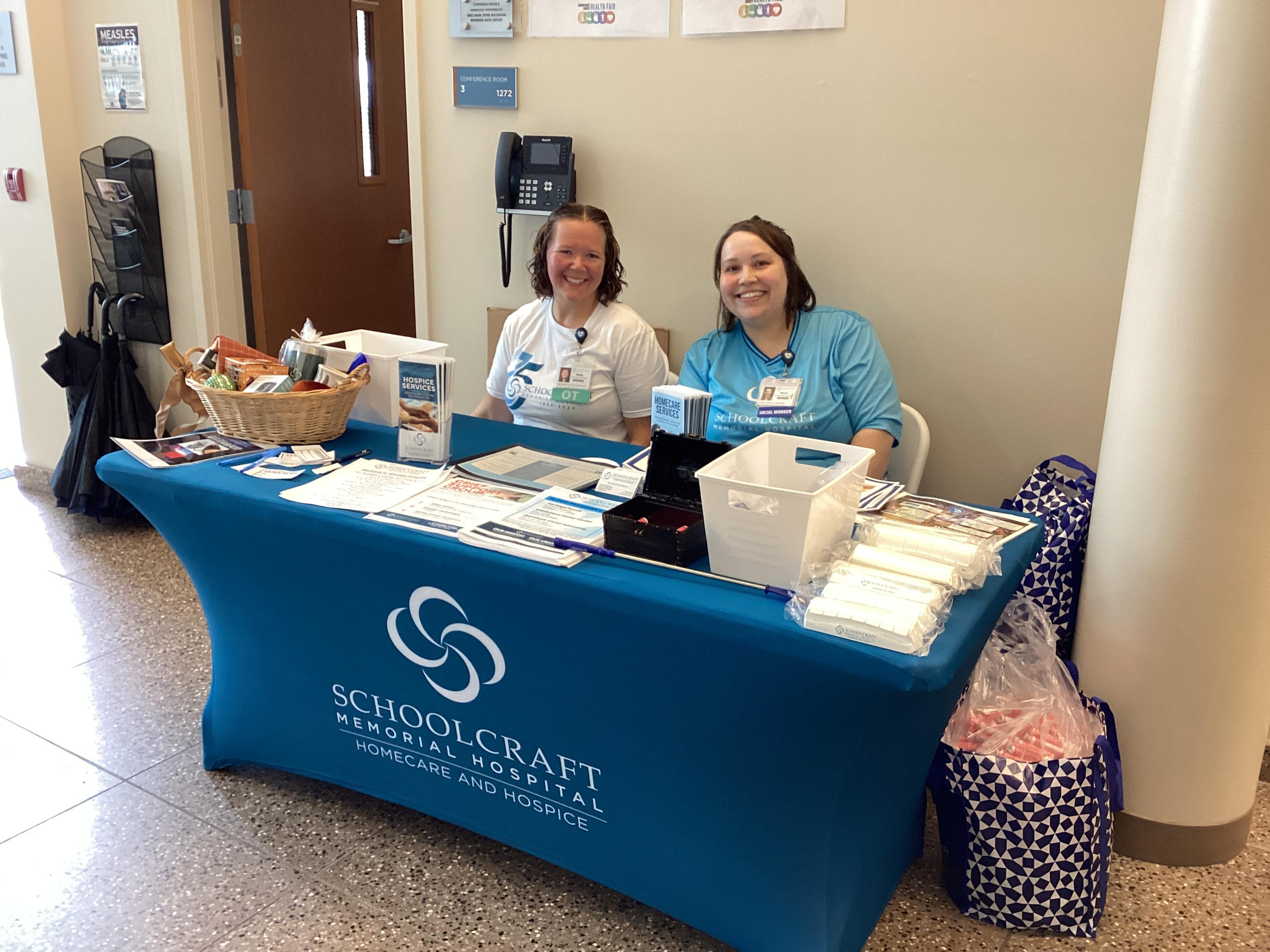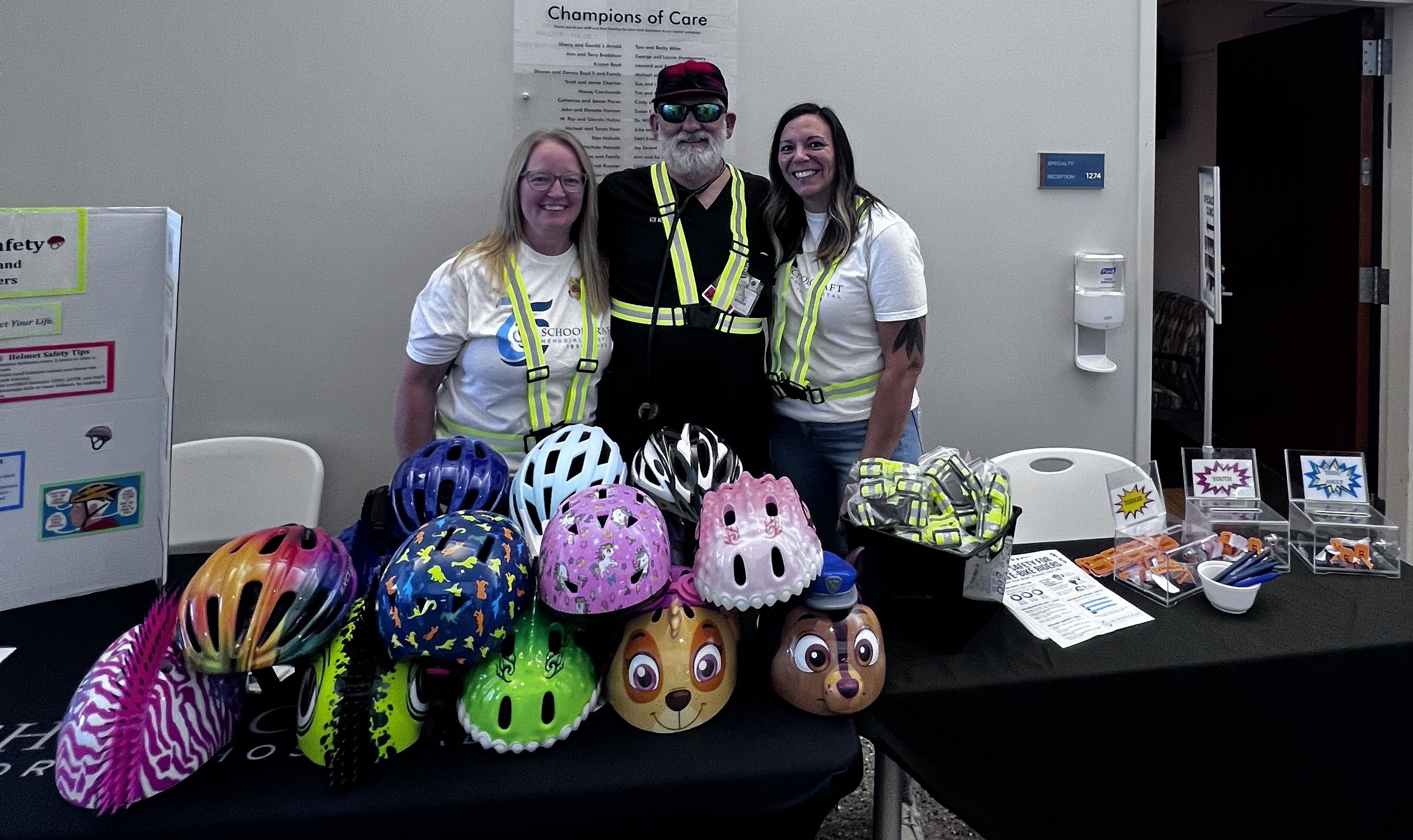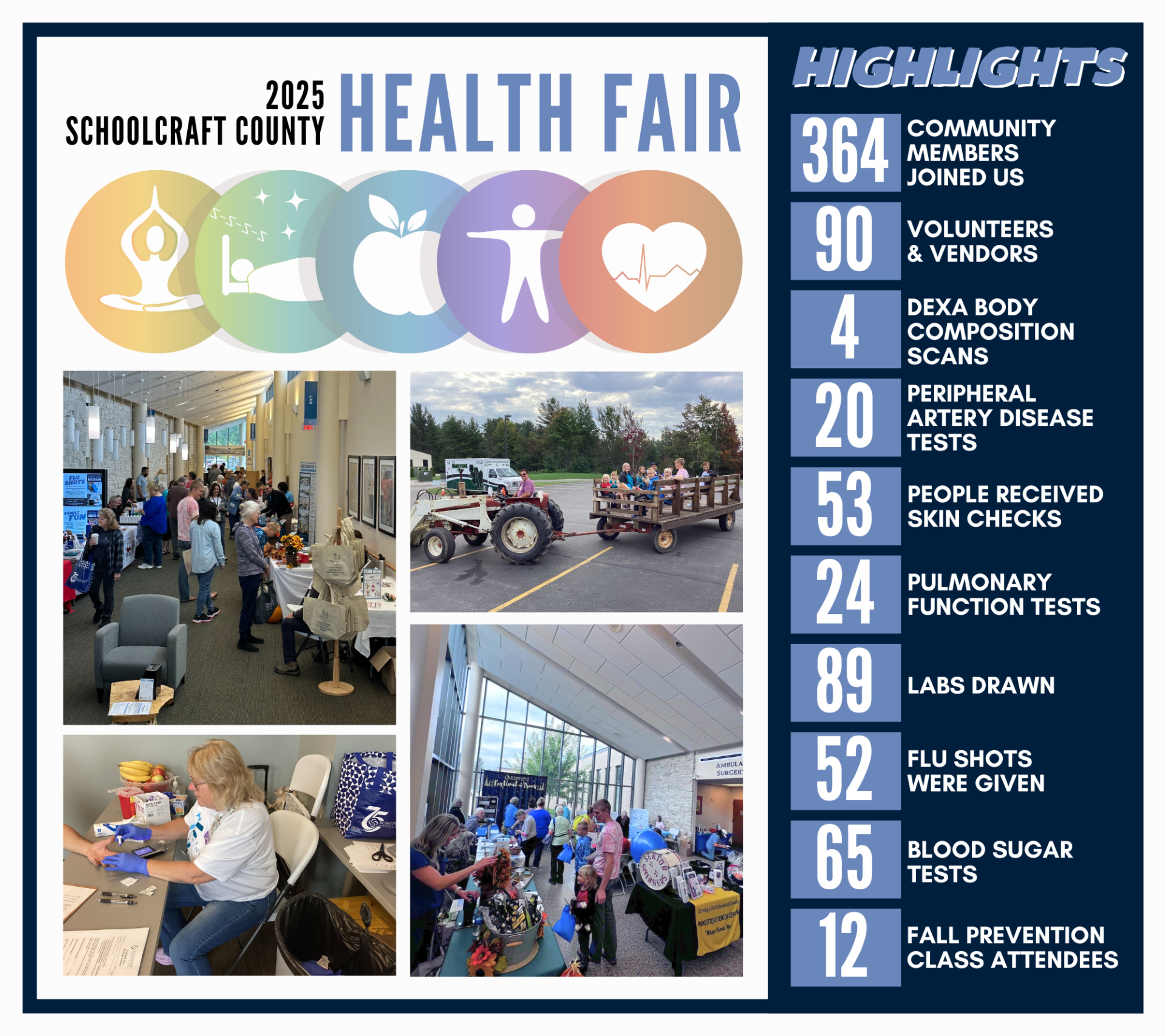Schoolcraft Memorial Hospital’s Preventive and Value-Based Care Efforts Help Manistique Improve Health Outcomes and Lower Costs for Manistique Residents
Jake Newby
| 5 min read

Key Takeaways
- Schoolcraft Memorial Hospital in Michigan's Upper Peninsula is a Critical Access Hospital, meaning it provides essential health care services to underserved areas.
- Beyond providing high-quality care at the hospital itself, Schoolcraft hosts yearly community events, like its annual county fair, where flu shots and other tests and preventive exams are administered for free.
- Manistique, where Schoolcraft is located, is home to an aging population, so emphasizing preventive care to prevent or lessen the effect of chronic conditions is important for the community.
- Through its partnership with Blue Cross, Schoolcraft practices a Hospital Pay-for-Performance Program, which rewards hospitals that excel at care quality, cost-efficiency and population health management.
Critical Access Hospitals (CAH) help residents in rural areas like Manistique avoid an expensive health care system when their options are limited.
Health care access is historically limited in rural areas, which can force residents to travel long distances for care, leading to delayed care and worse health outcomes. Limited access and the prospect of lengthy travel can make preventive care difficult for these residents, which leads to poor health and chronic conditions.
A need to treat these developing conditions leads to a dependency on emergency services, which are significantly costlier than primary care. These are issues that can unfortunately compound for individuals in rural communities.
Schoolcraft Memorial Hospital (SMH) – a designated CAH that has served Schoolcraft County and four other nearby Upper Peninsula counties for 75 years – breaks down barriers to care for residents in Manistique’s surrounding communities, so people in those areas can avoid issues like long-distance travel. Beyond providing high-quality care at the hospital itself, SMH hosts yearly community events, like its annual Schoolcraft County Fair.

“The health fair gives us an opportunity to have one-on-one conversations, knowing they’re not coming in and talking to their providers on their own,” said Laura Everhart, the director of pharmacy at SMH. “The outreach gives them an opportunity to get some answers.”
At this year’s county fair, flu shots, skin checks, blood sugar tests, falls prevention classes and many other important preventive exams and classes were delivered for free. The outreach and educational elements of these events can be just as important as the care itself, as knowledge and information can empower residents to take control of their own health.
“We hold community events because it aligns with our vision, which is catering to the needs of the community and building that cornerstone of health for everybody,” said Kimberly Shiner, SMH’s director of compliance, quality and risk management, who stressed the importance of the preventive nature of events like the county fair. “Making sure you’re taking care of yourself prior to something more complicated happening is really important and it’s part of that education process for the patients.”
Why preventive care, immunization education are critical in rural communities
Manistique is home to an aging population, so SMH serves many patients with chronic conditions. Preventive care is important for every age group, but for older adults, preventive care can detect certain diseases and conditions early when they are treatable, increasing independence, longevity and quality of life. It also helps patients save on expensive health care costs in the long run.
“Just like you do preventive care on your vehicle or your house, you need to do preventive care on yourself” said Shiner, who is also the mayor of Manistique. “It drives down your overall costs because then you’re not paying (to go to the emergency room) and you’re not dealing with inpatient admitting. You’re actually just taking care of things on the forefront, so you don’t have to come to the ER because you waited too long to take care of your diabetes or your blood pressure or your cardiomyopathy. And now you’re being shipped out in a helicopter because you don’t have the insurance for that. All of a sudden, you’ve got all these bills.”

Everhart added that the flu shot is important for older adults and young children, allowing them to avoid the hospital and stay healthy throughout flu season. In total, 52 flu shots were given at this year’s Schoolcraft County Fair. Since the COVID-19 pandemic, Everhart said, people have become more skeptical about vaccines. Events like the county fair give physicians and residents the opportunity to dispel those myths and discuss how important it is to vaccinate against the flu.
“It’s really important to get vaccinated with flu season coming,” Everhart said. “When we vaccinate against the flu, we not only help ourselves, but we help others avoid disease.”
How partnering with Blue Cross and the Pay-for-Performance program have impacted Schoolcraft County
SMH has partnered with Blue Cross Blue Shield of Michigan for many years, through many initiatives. One of which is Blue Cross’ Hospital Pay-for-Performance (P4P) Program, which rewards hospitals that excel at care quality, cost-efficiency and population health management.
P4P is closely aligned with Blue Cross’ value-based care model, a model that rewards providers for improving quality, efficiency and better health outcomes, rather than paying providers based on the number of tests or procedures performed, some of which aren’t needed or don’t work.

Administratively, participating in P4P has allowed SMH to implement up-to-date technology to track patient preventive care metrics. In terms of patient care, shifting to P4P and value-based care helps SMH hammer home the importance of preventive care by enabling physicians to truly put patients first. Shiner used patients with hypertension as an example, saying they are encouraged to take a second test before they leave if their first test reveals elevated blood pressure.
“We don’t let them leave before retaking it and maybe talking about which medication they should be taking instead,” she said. “Those are the types of things the value-based care model helps you think about more.”
From the value-based care it provides to the many community outreach events it holds each year, Schoolcraft makes good on its mission to be a patient-first hospital for a rural community with limited options.
“It’s all woven together,” Shiner said. “I always say it’s a circle of care for the patient. Everything we do is a part of that circle.”
Learn more about Schoolcraft Memorial Hospital, including its mission and services, by clicking here. You can also learn more about Blue Cross’ Community Responsibility upcoming events, current programs and outreach efforts by visiting this link.
Photo credit: Schoolcraft Memorial Hospital
Keep reading:





